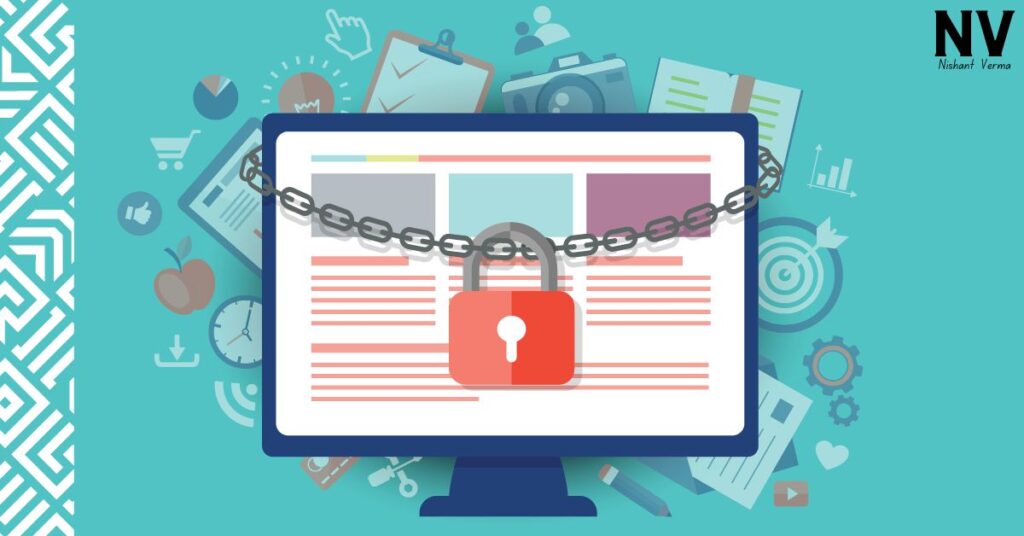In the digital age, where personal information flows through the virtual veins of the internet, the concept of data privacy has become paramount. Far from being a mere compliance requirement, data privacy can be harnessed as a powerful marketing advantage. This article delves into the symbiotic relationship between data privacy and marketing, exploring how businesses can protect their customers’ information while using it to build trust, enhance customer relationships, and gain a competitive edge.

Chapter 1: The Evolution of data privacy and marketing
1.1 Understanding Data Privacy
Data privacy refers to the protection of personal information collected, stored, and processed by organizations. This includes details like names, addresses, financial data, and any other information that can identify an individual.
1.2 The Digital Landscape
The exponential growth of digital technologies has intensified the need for data privacy. As consumers share more information online, concerns about how businesses handle and safeguard this data have escalated.
Chapter 2: The Importance of Data Privacy in Marketing
2.1 Building Customer Trust
Respecting data privacy and marketing is fundamental to building trust with customers. When individuals feel confident that their information is secure, they are more likely to engage with a brand and share valuable data.
2.2 Legal and Ethical Obligations
Adhering to data privacy and marketing regulations is not just a legal requirement; it is an ethical obligation. Demonstrating a commitment to ethical practices enhances a brand’s reputation and fosters a positive relationship with customers.
2.3 Mitigating Risks and Rebuilding Post-Incident
Data breaches can have severe consequences for businesses. Prioritizing data privacy not only mitigates the risk of breaches but also positions a brand favorably in the eyes of customers, especially during recovery efforts.
Chapter 3: Transparency and Communication
3.1 Transparent Data Collection Practices
Being transparent about how and why data is collected is crucial. Clear communication builds a sense of openness, assuring customers that their information is handled responsibly.
3.2 Opt-In Mechanisms
Allowing customers to opt into data collection ensures that they willingly provide information. This opt-in approach respects their autonomy and preferences, fostering a positive perception of the brand.
3.3 Privacy Policies in Plain Language
Privacy policies should be written in clear, simple language. Avoiding complex jargon makes it easier for customers to understand how their data is used, reinforcing the brand’s commitment to transparency.
Chapter 4: The Role of Consent in Data Privacy
4.1 Informed Consent
Genuine consent involves providing individuals with clear information about what data will be collected and how it will be used. Informed consent empowers customers to make informed decisions about sharing their information.
4.2 Permission-Based Marketing
Opting for permission-based marketing ensures that communications are sent only to individuals who have explicitly given consent. This approach not only aligns with data privacy and marketing principles but also enhances the effectiveness of marketing efforts.
4.3 Consent Management Platforms
Utilizing consent management platforms allows businesses to track and manage customer consent efficiently. This ensures compliance with regulations and provides a centralized system for handling consent-related processes.

Chapter 5: Data Security Measures
5.1 Encryption Technologies
Implementing robust encryption technologies safeguards customer data during transmission and storage. Encryption is a fundamental aspect of data security that protects sensitive information from unauthorized access.
5.2 Secure Data Storage Practices
Adopting secure data storage practices, such as regular security audits, restricted access controls, and encryption ensures that customer information is protected from potential threats and breaches.
5.3 Employee Training on Data Security
Employees play a crucial role in maintaining data security and marketing. Training staff on data security best practices, the importance of confidentiality, and how to handle customer information responsibly is essential.
Chapter 6: Leveraging data privacy and marketing for Marketing Success
6.1 Personalized Marketing with Consent
When customers willingly share their preferences, businesses can leverage this data to deliver personalized marketing experiences. Personalization, when done ethically and with consent, enhances customer engagement.
6.2 Targeted Advertising without Intrusion
By respecting privacy preferences and utilizing opt-in mechanisms, businesses can engage in targeted advertising without being perceived as intrusive. This approach aligns with customer expectations and fosters a positive brand image.
6.3 Trust-Building Campaigns
Launching campaigns that highlight a commitment to data privacy builds trust. Communicating how customer data is protected and showcasing security measures demonstrates transparency and responsibility.
Chapter 7: Overcoming Challenges in Data Privacy Marketing
7.1 Balancing Personalization and Privacy
Finding the right balancing personalization marketing and respecting privacy can be challenging. Businesses must navigate this delicate equilibrium by prioritizing customer consent and preferences.
7.2 Adapting to Evolving Regulations
data privacy and marketing regulations are dynamic and subject to change. Staying informed about evolving regulations and adapting marketing strategies accordingly is crucial for ongoing compliance.
7.3 Gaining Customer Trust Post-Breaches
In the unfortunate event of a data breach, regaining customer trust requires transparency, accountability, and decisive actions. Communication efforts post-incident play a critical role in rebuilding trust.
Chapter 8: Real-Life Examples of Data Privacy Success
8.1 Apple: Privacy as a Selling Point
Examining how Apple has positioned privacy as a key selling point, leveraging data protection measures to enhance its brand image and appeal to privacy-conscious consumers.
8.2 GDPR Compliance in European Companies
Exploring how companies in Europe have successfully embraced GDPR compliance not just as a legal requirement but as a marketing advantage showcasing their commitment to data privacy.
8.3 Subscription-Based Models: A Trust-Building Approach
Analyzing subscription-based models where customers willingly pay for services, acknowledging the value of their data, and trusting brands to handle it responsibly.

Chapter 9: The Future of Data Privacy in Marketing
9.1 Ethical AI and Machine Learning
As artificial intelligence and machine learning play an increasing role in marketing, prioritizing ethical practices in these technologies will be essential for maintaining customer trust.
9.2 Enhanced data privacy and marketing Regulations
Anticipating the evolution of data privacy regulations globally, businesses should prepare for heightened expectations and requirements to protect customer information.
9.3 Customer Empowerment and Control
The future involves providing customers with more control over their data. Businesses that empower customers to manage their privacy settings and preferences will gain a competitive edge.
Chapter 10: Conclusion
In conclusion, data privacy is not merely a legal obligation but a cornerstone for building trust and fostering long-term customer relationships. Businesses that embrace data privacy and marketing as a marketing advantage demonstrate their commitment to ethical practices, transparency, and customer-centricity.
As the digital landscape continues to evolve, the symbiotic relationship between data privacy and marketing will shape the success of businesses. By safeguarding trust, respecting customer preferences, and leveraging data responsibly, businesses can not only comply with regulations but also thrive in an era where ethical data practices are a powerful differentiator in the competitive marketplace.




